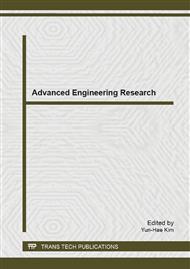p.1500
p.1504
p.1509
p.1514
p.1518
p.1528
p.1532
p.1536
p.1540
Game Analysis of Reverse Supply Chain Based on Government Regulation
Abstract:
Extended producer responsibility (EPR) system is an environmental protection strategy to recycle end-of-life products. A dynamic analysis model between the government and the reverse supply chain (RSC) system operated under the EPR instrument was established. Game theory was applied to analyze the optimal fiscal policy of the government and the optimal decision of the participating enterprises. It concludes that governments environmental regulation is effective to improve the manufacturers remanufacturing rate and the recyclers effort-extent.
Info:
Periodical:
Pages:
1528-1531
Citation:
Online since:
April 2014
Authors:
Price:
Сopyright:
© 2014 Trans Tech Publications Ltd. All Rights Reserved
Share:
Citation:


